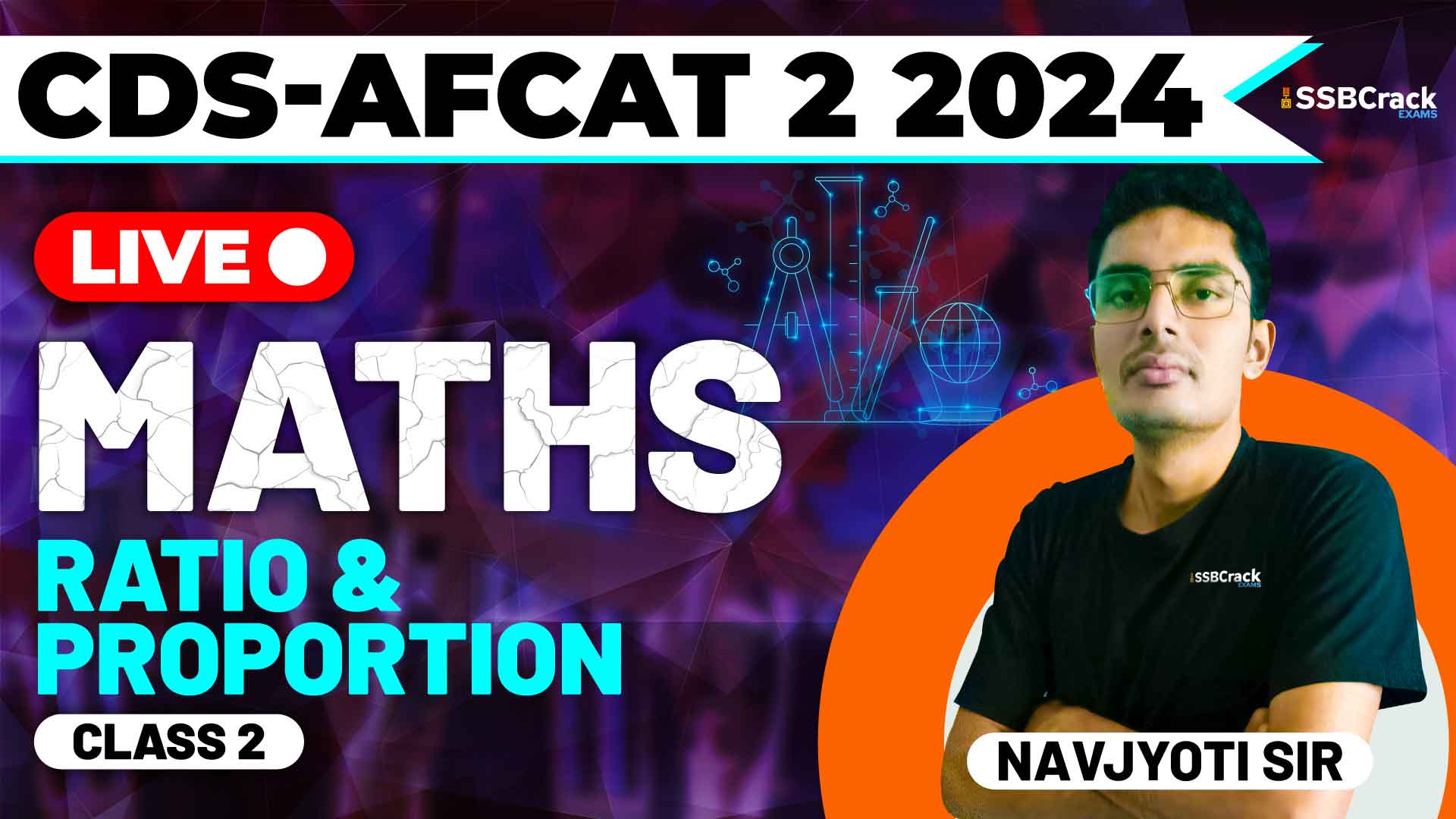Preparing for competitive exams like the Combined Defence Services (CDS) and Air Force Common Admission Test (AFCAT) requires a solid grasp of various mathematical concepts. Among these, Ratio and Proportion are foundational topics that are frequently tested. Recently, a dedicated class focused on Ratio and Proportion, emphasizing an in-depth discussion of previous year questions and other critical multiple-choice questions (MCQs). This article aims to summarize the key points covered in the class, highlighting the importance of understanding these concepts and practicing extensively with MCQs.
Understanding Ratio and Proportion
Ratio and Proportion are essential mathematical tools used to compare quantities and establish relationships between them. These concepts are not only vital for competitive exams but also have wide applications in everyday life, including financial calculations, cooking recipes, and much more.
Ratio
A ratio is a relationship between two numbers indicating how many times the first number contains the second. It is expressed as A : B or A/B, where A and B are the quantities being compared.
Proportion
A proportion is an equation that shows two ratios are equal. It expresses the concept of equivalence between two ratios, indicating a consistent relationship between the quantities involved
Importance of Ratio and Proportion in Competitive Exams
Understanding and solving Ratio and Proportion problems is crucial for competitive exams like CDS and AFCAT. These problems test a candidate’s logical reasoning, numerical ability, and understanding of quantitative relationships. Questions can range from basic calculations to more complex scenarios requiring multiple steps and logical deductions.
Extensive Discussion of Previous Year Questions
The class placed a strong emphasis on discussing previous year questions. This approach helps students understand the types of questions that are frequently asked in exams and the patterns that emerge over time. Reviewing previous year questions provides several benefits:
- Familiarity with Exam Pattern: Understanding the types of questions and their formats helps students become familiar with the exam pattern.
- Identifying Important Topics: Reviewing past questions highlights the most frequently tested topics, allowing students to focus their preparation accordingly.
- Time Management: Practicing with previous year questions helps in managing time effectively during the exam.
- Confidence Building: Familiarity with the question pattern and repeated practice builds confidence and reduces exam anxiety.
Importance of Practicing MCQs
Practicing MCQs is an integral part of preparation for competitive exams. Here’s why it’s so important:
- Application of Theory: MCQs help in applying theoretical knowledge to practical problems, reinforcing understanding.
- Speed and Accuracy: Regular practice improves both speed and accuracy, which are crucial for competitive exams.
- Exposure to Various Questions: Practicing a variety of questions ensures exposure to different types of problems and scenarios.
- Self-Assessment: Solving MCQs helps in self-assessment, allowing students to identify strengths and areas that need improvement.
Conclusion
The class dedicated to Ratio and Proportion emphasized the importance of understanding basic concepts, accurately applying formulas, and regularly practicing different types of problems. Reviewing previous year questions and engaging with a variety of MCQs were key components of the class, providing students with the tools and confidence needed to excel in these exams.
Through consistent practice, strategic problem-solving, and a clear understanding of core concepts, you will be well-prepared to tackle Ratio and Proportion questions in the CDS and AFCAT exams. Stay focused, practice diligently, and approach each problem with a clear and analytical mind. Good luck!








